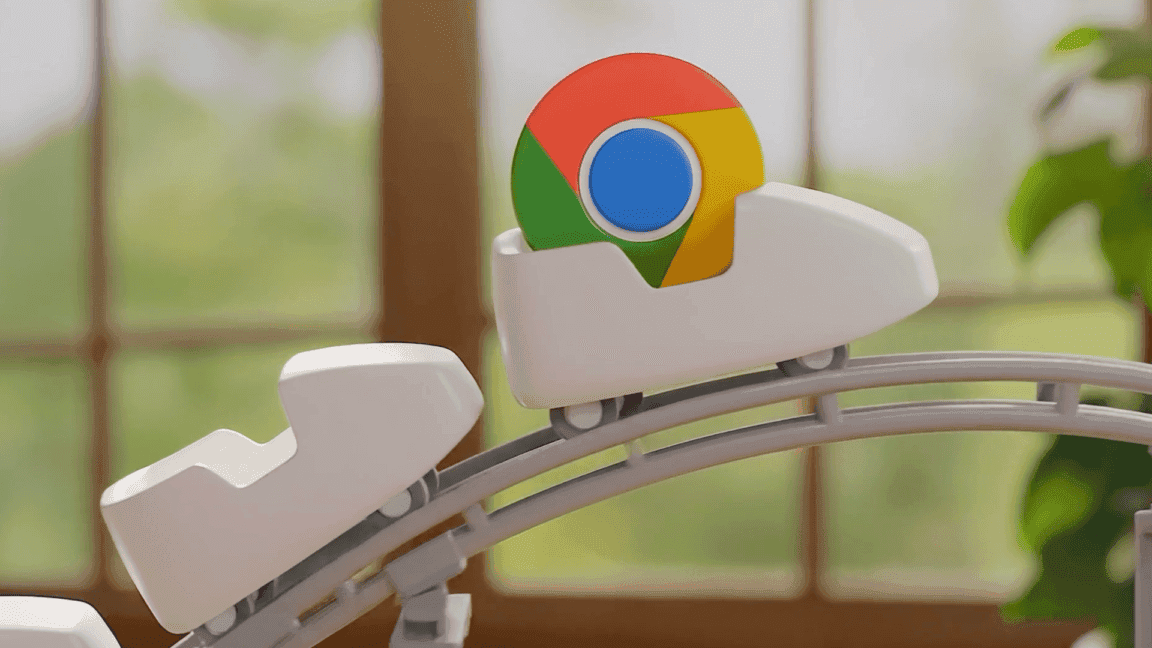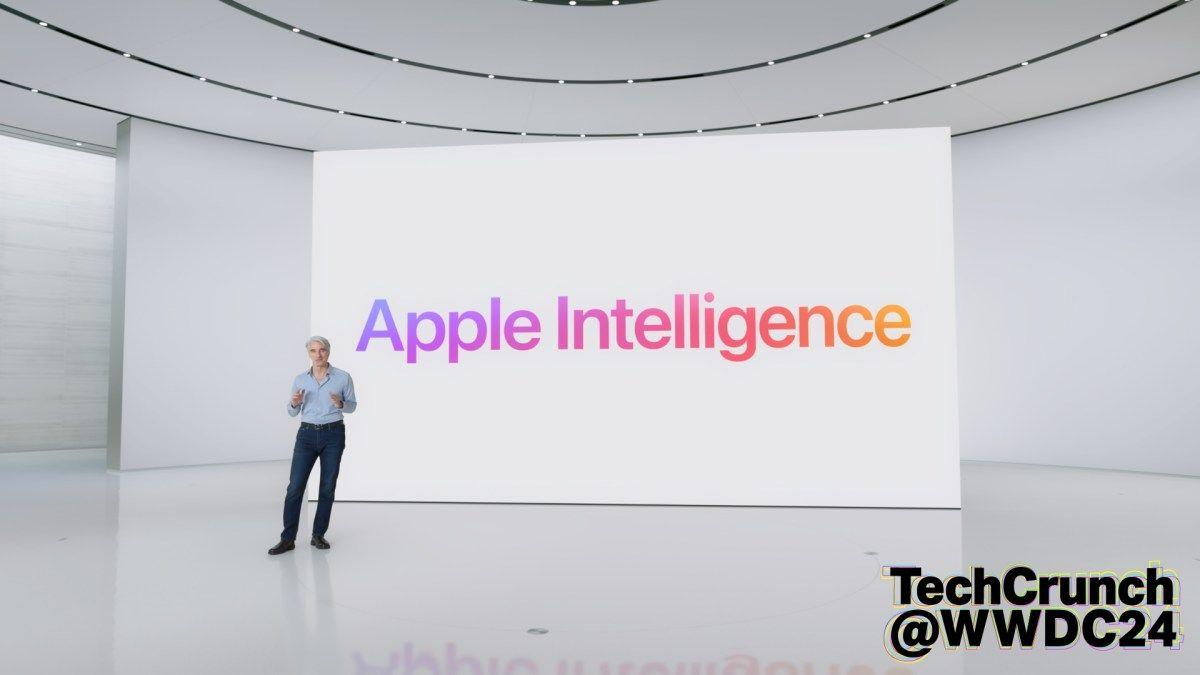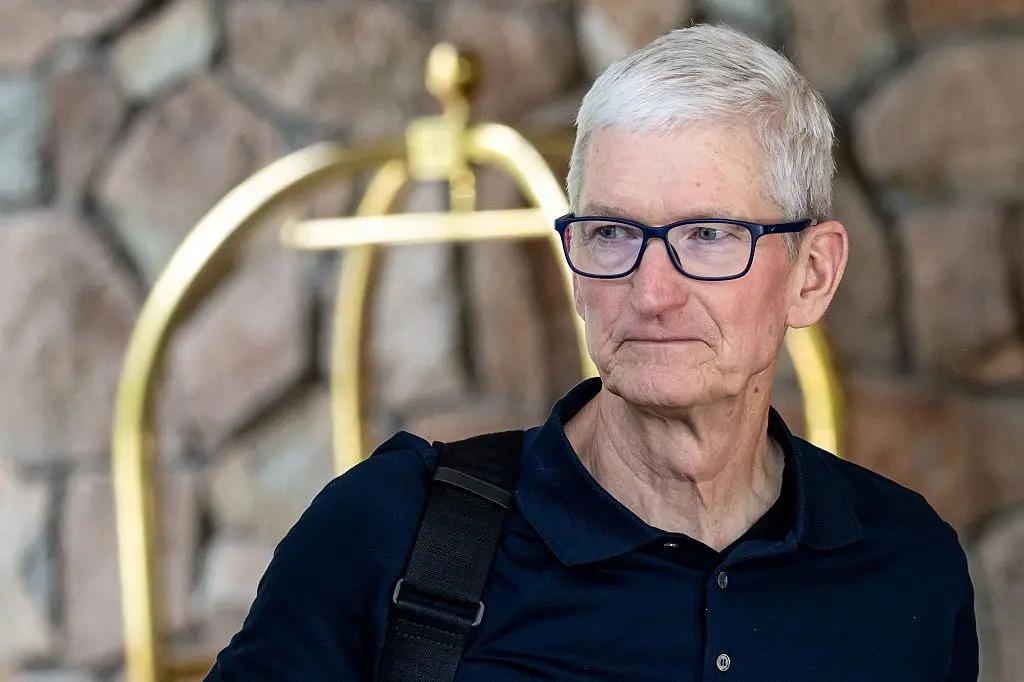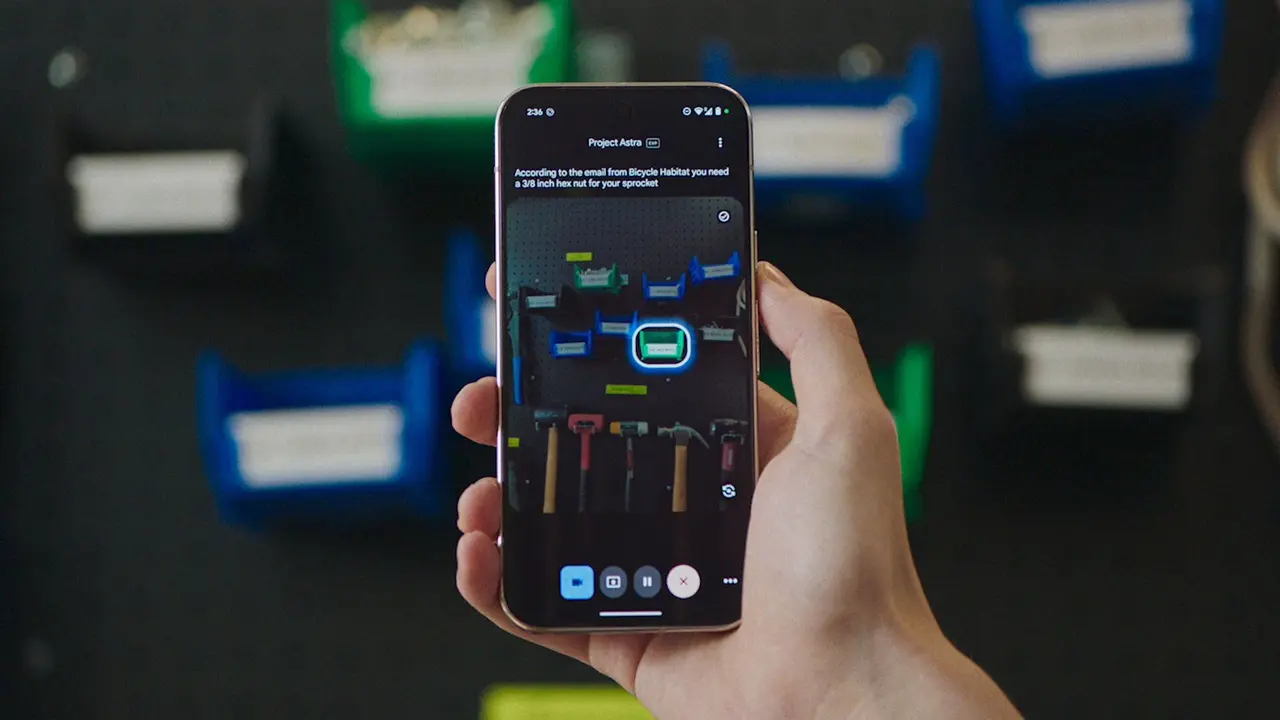Apple's Leadership Dilemma: Calls for Tim Cook's Replacement Amid AI Concerns
7 Sources
7 Sources
[1]
Apple CEO Tim Cook Should Be Replaced, Research Firm Says
Research firm LightShed partners says Apple should consider replacing Tim Cook as CEO, but the change is unlikely to occur any time soon. In a note to clients seen by Bloomberg, analysts Walter Piecyk and Joe Galone say that "Apple now needs a product-focused CEO, not one centered on logistics." Bloomberg notes that Apple shares have "badly lagged" behind rivals like Microsoft and Meta this year after losing ground in the race to deliver compelling artificial intelligence features. Apple shares have fallen 16% in 2025, compared with gains of 25% for Meta and 19% for Microsoft. The note added: Missing on AI could fundamentally alter the company's long-term trajectory and ability to grow at all. AI will reshape industries across the global economy, and Apple risks becoming one of its casualties. It is worth noting that this year's slump in Apple shares is a comparative blip in the company's long-term performance with Cook at the helm. Apple shares have gained over 1,400% since Cook started as CEO, compared to 430% for the S&P 500. The comments come after Apple announced that Chief Operating Officer Jeff Williams will step down from his position this month. He will be replaced by Sabih Khan. Williams was once thought to be Cook's most likely successor. Now, senior vice president of hardware engineering John Ternus is believed to be the frontrunner. LightShed says "Tim Cook was the right CEO at the time of his appointment and unquestionably has done a great job," but in the wake of Williams' departure, "it's time for more disruptive change, not less." However, Cook is unlikely to step down anytime soon. In his latest "Power On" newsletter, Bloomberg's Mark Gurman said that "there's no immediate successor ready to take the helm. There also haven't been signs internally that Cook is getting ready to leave or begin the process of grooming a replacement." More significantly, "the board doesn't feel the need to make a change. Apple's directors are Cook loyalists like Arthur Levinson, Susan Wagner and Ronald Sugar." Gurman says: There's no question Cook bears responsibility for Apple's current struggles. That includes the company's AI missteps, an aging product lineup, the erosion of its design-focused culture, a decade-long drought of breakthrough mainstream hardware, and its growing tensions with developers and regulators. But there's also no question that the board still sees him as the only person capable of turning things around. Put simply: No crisis is big enough to shake the board's faith in Cook. In fact, Cook's influence at Apple may grow. Gurman believes he could become Apple's chairman, in addition to his role as CEO: Levinson, Apple's longtime chairman, has already surpassed the company's recommended board retirement age. So it wouldn't be surprising to see Cook eventually step into that role himself, as Iger, Dimon, Microsoft Corp.'s Satya Nadella and Cisco Systems Inc.'s Chuck Robbins have done at their companies. That would give Cook an even tighter grip on the iPhone maker. Nevertheless, Apple apparently recognizes the need for change at the company. Senior executives such as services chief Eddy Cue have warned that Apple risks becoming the next BlackBerry or Nokia if it doesn't adapt quickly.
[2]
Apple's Tim Cook is under pressure -- but there are a few key reasons leadership experts think he's still the guy for the job
Is it time for Apple CEO Tim Cook to clean out his office? You might think so after the past few weeks. But top experts on CEO successions counsel settling down and looking at the big picture. It shows why Cook might remain CEO for years and why that might even be the best course for Apple. The recent depressing news included a top Apple AI executive's defection to Meta just weeks after another high-level AI researcher had left -- especially painful because Apple is widely seen as a laggard in the world's hottest technology, AI. Last month Apple's annual Worldwide Developer Conference, often a scene of breathtaking new products or services, was "a snoozer," said Wedbush analyst Dan Ives. While stocks of Microsoft and Alphabet are hitting new highs, Apple is down 16% this year. Little wonder that a Wall Street research firm, Lightshed, concluded Cook is no longer the right boss for Apple. The company "now needs a product-focused CEO, not one centered on logistics," the firm wrote. "AI is not something that Apple can merely 'pull the string' on. Missing on AI could fundamentally alter the company's long-term trajectory and ability to grow at all." By earlier standards, Cook would have been on his way out in any case. In August he will have been CEO for 14 years, and in November he turns 65. But 65 is nothing special anymore, and no board of directors will hurry to dispatch a CEO who created far more shareholder value than his legendary predecessor, Steve Jobs, ever did. At least in theory, the options for Cook and the board are wide open. So what should Cook and the board do? To get an authoritative answer, Fortune recruited three eminent executive search experts, each of whom has counseled scores of major boards on managing successions. We agreed to withhold their names so that they could speak completely candidly. Here are their combined thoughts -- as well as the final word from preeminent business historian Richard Tedlow, who gives a compelling comeback to anyone who thinks Cook's time is up. Apple's competitive environment now. "Two things are happening in parallel. One is AI, which is a much bigger deal than the internet was. The second thing is the evolution of the hardware. There's a 'good enough' problem. For most users, the phones are good enough. I'm a power phone user, and I use a several-year-old iPhone because there's no compelling reason to upgrade. Those two things in combination make for a more challenging environment for Apple." At the same time, the consultants see a temporary upside for Apple. "They don't have the existential threat that Google has from AI. Apple still has the platform -- I'm still using my Apple phone to reference ChatGPT. They're not losing revenue in that exchange. So if you look at where they make money, they actually don't need a quick entry [into AI]." "Remember, Apple has never been first to market with anything. They're considered to be the most innovative company in the world, but they have largely taken a concept that's been proven and made it applicable for use in ways that are highly innovative and esthetically appealing." Still, the clock has been ticking for a while. "I would be shocked if within the next 12 months they do not release a truly functioning baseline agent to replace Siri." When might Cook be thinking of stepping down? "That's really the foundational question. If it's two years, are there any outsiders who could plausibly come in? Are there any boomerang people who could come back from outside of Apple?" "Apple is less likely to go outside because of the cultural history of outsiders at Apple. It's almost revered, the story of how outsiders almost killed Apple [before Steve Jobs returned in 1997]. We hear pretty consistently that Cook is thinking of an age 68 to 70 timeline [which would be three to five years from now.] He feels that, with AI, there's some unfinished business." "I don't think Tim will be CEO until he's 70. I think he's tired, honestly. It's been an exhausting journey, and he's amazing, but I do sense a different energy." What kind of executive will Cook's successor be? "The common wisdom is that they really need a product visionary, as opposed to the operational genius that he was. I would argue that until the tariff and supply chain issues get resolved, they probably do need him at the helm because that is a non-trivial issue for them." Who are the leading candidates to succeed Cook? "The most obvious are John [Ternus] and Craig [Federighi]." Ternus is senior vice president hardware engineering. Federighi is senior vice president software engineering. "But given the timeline, [the company] could still make quite a few changes, and it could be somebody quite different." "There are a few companies where being a CEO is really like being the president of a country, and Apple is one of those. There are maybe a dozen. It sounds kind of heretical to say, but to some degree, the smaller part of the job is effectively operating the company." Bottom line, what is the big-picture assessment of Tim Cook? For this we turn to a business historian, Richard Tedlow, an emeritus professor at the Harvard Business School. Like any good professor, he asks questions. He starts by asking five crucial questions about Apple: Does it satisfy customers? Does it come from behind? Does it have a powerful corporate culture? Is it willing to admit mistakes? Does it have "an imagination of disaster," a realization that things could go badly wrong? Approvingly, he answers Yes to all. Told that a Wall Street research firm has said Cook should resign, Tedlow notes that Warren Buffett invited Cook to Berkshire Hathaway's annual meeting in May and said, "I'm somewhat embarrassed to say that Tim Cook has made Berkshire a lot more money than I've ever made [for] Berkshire Hathaway." Tedlow asks, "If that Wall Street firm called Buffett and said, 'Warren, do you think it's time to get rid of Tim Cook,' what do you think Warren would say?" Tedlow's ultimate query: "If you could choose anybody to be the CEO of Apple right now -- anybody in the whole history of business, from John Jacob Astor to John D. Rockefeller to Tom Watson Sr. to Andy Grove to Tim Cook -- whom would you choose? This is actually not a difficult question."
[3]
With all eyes on Apple's next earnings report, one research firm calls on Tim Cook to step aside
As Apple's stock trades down double digits since the start of the year, market onlookers are hoping its next earnings call will show strength and dispel doubts about Tim Cook's leadership. The iPhone maker has faced pressure across the board since the start of the year, especially as President Donald Trump's tariffs threaten its Asia supply chain. At the same time, some have claimed the company has fallen behind in the accelerating AI race, and may need to execute an uncharacteristically massive acquisition to catch up. Amid all those obstacles, Apple's stock is down about 16% year-to-date. And research firm LightShed Partners suggested in a recent note to clients that the company's woes, in AI especially, mean Apple needs a shakeup at the top. "Apple now needs a product-focused CEO, not one centered on logistics. Apple has 'pulled the string' on too many product categories, only to see them fall short of meaningful scale, or fail to materialize entirely," wrote LightShed analysts Walter Piecyk and Joe Galone. "But AI is not something that Apple can merely 'pull the string' on. Missing on AI could fundamentally alter the company's long-term trajectory and ability to grow at all." The analysts' comments come in the wake of Apple's annual WWDC, which Wedbush analyst Dan Ives called "a snoozer" which barely mentioned AI. The LightShed analysts noted that it would be kind to say Apple overpromised and underdelivered on its AI promises from last year to this year. "Apple was nowhere with AI then, and little has changed since," the note read. Ives of Wedbush has called for Apple to acquire the AI web search startup Perplexity in order to gain a foothold in the AI race. Still, Apple, in the tradition of cofounder Steve Jobs, has mostly preferred to build products in-house rather than acquire. Apple did not immediately respond to Fortune's request for comment. Despite the company's issues, calls for Tim Cook to step aside may be premature, others have claimed, given his past success in elevating the company's stock price by nearly 1500% over his decade-plus tenure. Thanks in part to his background in logistics, the Apple CEO also revamped the company's supply chains to achieve higher margins and grew its net income to about $100 billion at its peak, from $25.9 billion at the start of his tenure. Other market onlookers, including Melissa Otto, the head of research at S&P Global Visible Alpha, say the company's upcoming earnings on July 31, are Apple's chance to demonstrate a turnaround. If Apple is no longer going to deliver the same kind of growth investors have been used to in its core devices business, it will need to show the potential of another category. This lifeline could come in the form of Apple's growing services business, which includes iCloud, App Store purchase fees, and advertising. During its second quarter, Apple's year-over-year services growth grew by double digits to about $26.6 billion, which -- while still short of the $68.7 billion brought in by its products -- made up a growing chunk of its revenue. Services revenue came in at $96.1 billion as of the company's last annual report, up from $85.2 billion in fiscal 2023, and analysts project it will continue to grow by year's end. The question now, said Otto, is whether Apple can take advantage of the high-margin services business to really drive revenue growth. "I think if they can continue to outpace expectations around the services business, we may start to see additional incremental positive sentiment come into the stock; however, if they don't, that does leave a lot of open questions about what's next for them," Otto told Fortune.
[4]
Apple CEO Tim Cook's Replacement Should Be Considered Because Of His Failure To Capitalize On AI, Claims Research Firm; New Details State That Missed Opportunity Could Alter Its 'Ability To Grow At All'
A 14-year career as CEO of one of the biggest technology companies in the world can exact a heavy toll, and just like everyone else, Apple's Chief Executive Officer, Tim Cook, is human. This year has seen a slew of failures under his leadership, but the most important one, which analysts and research firms all around the world would agree on, was his failure to capitalize on the AI boom, leaving the trillion-dollar entity trailing behind the likes of Google, Microsoft, OpenAI, and others. Primarily for this reason, a research firm believes that Apple should consider replacing Tim Cook, stating that the company's ability to grow could be altered because of its current stance. A research note from LightShed Partners that was spotted by Bloomberg mentions the analysts Walter Piecyk and Joe Galone, who strongly suggest Tim Cook's replacement should be a product-focused individual. Before picking up Steve Jobs' mantle as CEO, Cook was appointed as Apple's Senior Vice President for Worldwide Operations and was adept at streamlining supply chains, helping the Cupertino firm reduce extended waiting periods for products, capturing market after market. However, Tim Cook is currently experiencing somewhat of a slump, which can happen to any Chief Executive, but the following details reported about by MacRumors mention that the failure to capitalize on AI could adversely affect the company's position in the long run. Since artificial intelligence is expected to change the course of several industries, if Apple does not adapt, it risks its future growth. "Missing on AI could fundamentally alter the company's long-term trajectory and ability to grow at all. AI will reshape industries across the global economy, and Apple risks becoming one of its casualties." While analysts continue to clamor about finding a suitable replacement for Tim Cook, bear in mind that under his tenure, Apple's shares are currently trading at 1,500 percent higher than what they were in 2011, with its current market valuation nearly 10 times what it was 14 years ago, standing at an imposing $3.12 trillion. A single bad year should not undermine what Cook has done in taking the company to new heights, and even if his replacement was being contemplated, a previous report states that Apple's board has a few Cook loyalists who could stand in the way of this transition. What is also interesting to point out is that while we continue hearing these chatters to rid Tim Cook from his current office, hardly anyone has pointed out a suitable replacement. Jeff Williams, who was Cook's 'second in command,' is set to set to retire later this year, and Craig Federighi's acumen is limited to software engineering. In short, no matter how much background noise emanates from different directions, calling for the replacement of Apple's CEO, we doubt that it will happen any time soon.
[5]
Calls for a new Apple CEO aren't as controversial as they sound
Poor old Apple. The world's third most valuable company has seemed increasingly beleaguered of late, with product launches and software initiatives failing missing the mark. Whether it's the underwhelming response to Vision Pro, the never ending Apple Intelligence rollout debacle or whatever the advertising team are doing, the missteps are becoming alarmingly frequent. And now, a leading research firm has finally gone there, suggesting it might be time for Apple to replace its CEO. Tim Cook has been in post since 2011, when he replaced Steve Jobs - and during that time has seen Apple become the first $1T company. So if these murmurations show anything, it's that the last year hasn't gone so great. Apple shares have fallen 16% in 2025, while those of AI-focussed rivals have conversely risen. According to Bloomberg, research firm LightShed has argued in a note to clients that "Apple now needs a product-focused CEO, not one centered on logistics." Referencing Apple's faltering entrance into the AI race, the note adds, "Missing on AI could fundamentally alter the company's long-term trajectory and ability to grow at all. AI will reshape industries across the global economy, and Apple risks becoming one of its casualties." Bloomber's Mark Gurman goes even further, arguing, "There's no question Cook bears responsibility for Apple's current struggles. That includes the company's AI missteps, an aging product lineup, the erosion of its design-focused culture, a decade-long drought of breakthrough mainstream hardware, and its growing tensions with developers and regulators." There's been a sense in the tech space for a while that Apple needs another 'iPhone moment' - with the smartphone nearly 20 years old and innovation stalling, it feels like it's time for, as LightShed puts it, "more disruptive change". And with rivals like OpenAI gearing up to release their own much-hyped AI gadgets (complete with Jony Ive at the design helm), time has never been more of the essence for Apple to recapture some of that old magic.
[6]
Apple's C-suite undergoes major reshuffle -- here's what it means...
Apple has quietly undergone a major restructuring of its management team that has sparked speculation about the future of the world's third most valuable company -- but CEO Tim Cook isn't going anywhere. Even as the iPhone maker faces mounting challenges -- from AI stumbles to fading product innovation -- the 64-year-old chief executive retains firm control of the company founded by Steve Jobs, even as most of his direct reports are nearing retirement age. And with longtime lieutenant Jeff Williams set to retire later this year, Cook's leadership appears more entrenched than ever, according to Bloomberg News. Williams, Cook's most trusted deputy, will exit in December. Sabih Khan, Apple's senior vice president of operations, who is in his late 50s, is slated to assume the COO title. Meanwhile, Chief Financial Officer Luca Maestri has been succeeded by Kevan Parekh, and longtime product executive Dan Riccio departed at the end of last year. The company is seeing its biggest management shake-up in decades. Nearly half of Cook's approximately 20 direct reports are in their 60s and nearing retirement, including senior figures like marketing chief Greg Joswiak, App Store head Phil Schiller, environment executive Lisa Jackson and chip executive Johny Srouji. Cook, meanwhile, who turns 65 in November, has shown no signs of stepping down or preparing a successor. The departure of Williams, Apple's chief operating officer and widely seen as Cook's natural heir, leaves the company without a clear backup plan, Bloomberg News reported. It also reinforces Cook's position as the indispensable figure guiding Apple through turbulent times. Williams was uniquely positioned as both COO and unofficial backup CEO. Khan, while assuming the title, lacks the breadth of experience and institutional knowledge to immediately step in as chief executive, according to Bloomberg News. The situation is drawing industrywide comparisons to other long-tenured corporate leaders like Disney's Bob Iger and JPMorgan's Jamie Dimon, who have extended their influence well past traditional retirement age. For Cook, whose tenure as CEO began in 2011, the prospect of remaining at Apple's helm for another five years is increasingly likely as there is little urgency from Apple's board to initiate a transition, Bloomberg News reported. The directors -- longtime allies including Arthur Levinson, Susan Wagner and Ronald Sugar -- have largely deferred to Cook, who has delivered a staggering 1,500% increase in Apple's stock price since succeeding Steve Jobs. Though shares are down 16% in 2025, Cook remains the board's trusted operator during a period of technological and cultural flux. Under his watch, Apple expanded into China, launched successful new product lines like the Apple Watch and AirPods and transitioned into a subscription-driven business. These achievements, however, are being challenged by Apple's growing design stagnation, lagging AI performance and mounting criticism from developers and regulators. While rivals like Google, Microsoft, Meta, and OpenAI rolled out advanced AI capabilities early, Apple is seen as trailing far behind. Its flagship initiative, "Apple Intelligence," launched significantly later than competing products and still lacks several features that were promised during its 2024 debut. Still, there is no indication that the board is losing confidence, according to Bloomberg News. Inside Apple, Services head Eddy Cue has reportedly warned that the company risks becoming "the next BlackBerry or Nokia" if it fails to pivot quickly. Those concerns, coupled with the AI backlash, have prompted a reorganization of the org chart and the beginnings of a strategic reset. In order to right the ship, some have floated acquiring a top-tier AI startup and grooming its CEO for the top job. But insiders dismiss that possibility outright. Apple has reportedly explored acquisitions of companies like Perplexity and is considering Mistral, highlighting its increasing urgency in the AI arms race. The recent loss of Ruoming Pang, Apple's foundation models chief, to Meta in a deal reportedly worth more than $200 million, only underscores the stakes. Despite the leadership uncertainty, Apple has a slate of new products on the way, including updated iPhones, iPads and a refreshed Vision Pro headset. But the changes are largely incremental -- spec bumps rather than groundbreaking innovation, according to Bloomberg News. In the absence of revolutionary hardware or AI breakthroughs, the question of Cook's eventual exit- and what comes after -- continues to loom over Cupertino. For now, however, the CEO remains firmly in charge. And with no clear successor in place, the company's future is still very much Cook's to shape.
[7]
What if we already knew the name of Apple's next CEO?
After over 13 years in charge of Apple, Tim Cook's future now looks bleak. The company's recent setbacks, particularly in terms of artificial intelligence, have reignited criticism, with some analysts believing that a change in leadership would even be beneficial. According to a survey reported by Bloomberg, Tim Cook's departure would have only a limited impact on the share's price. In other words, Apple could weather the shock without batting an eyelid. Although an Apple spokesperson has said that "Tim Cook is not about to be poached," the market is already speculating about his successor. And the name of John Ternus keeps coming up. In a note published by LightShed Partners, analysts Walter Piecyk and Joe Galone believe that it would be wise to replace a logistics profile, such as Tim Cook, former head of supply chain, with a more product-focused executive. This is precisely what some investors criticize Apple of: neglecting product innovation in favor of almost industrial-scale operational rigor. John Ternus, who is currently vice president of hardware engineering, embodies this more product-focused profile. He has been with this company for over ten years, having led the development of many flagship devices, and enjoys a certain popularity within the company. In his fifties, he is seen as a long-term solution. These speculations echo the recent path taken by Meta in AI, with Mark Zuckerberg not hesitating to relegate certain executives in favor of others with more artificial intelligence-oriented profiles.
Share
Share
Copy Link
Research firm LightShed Partners suggests Apple should consider replacing CEO Tim Cook due to the company's lagging performance in AI and recent stock decline, sparking debate about Apple's future leadership and strategy.
Apple's Leadership Crisis: Calls for Tim Cook's Replacement
In a surprising turn of events, Apple, the tech giant known for its innovation and market dominance, is facing calls for a leadership change. Research firm LightShed Partners has suggested that Apple should consider replacing CEO Tim Cook, citing the company's lagging performance in artificial intelligence (AI) and recent stock decline
1
.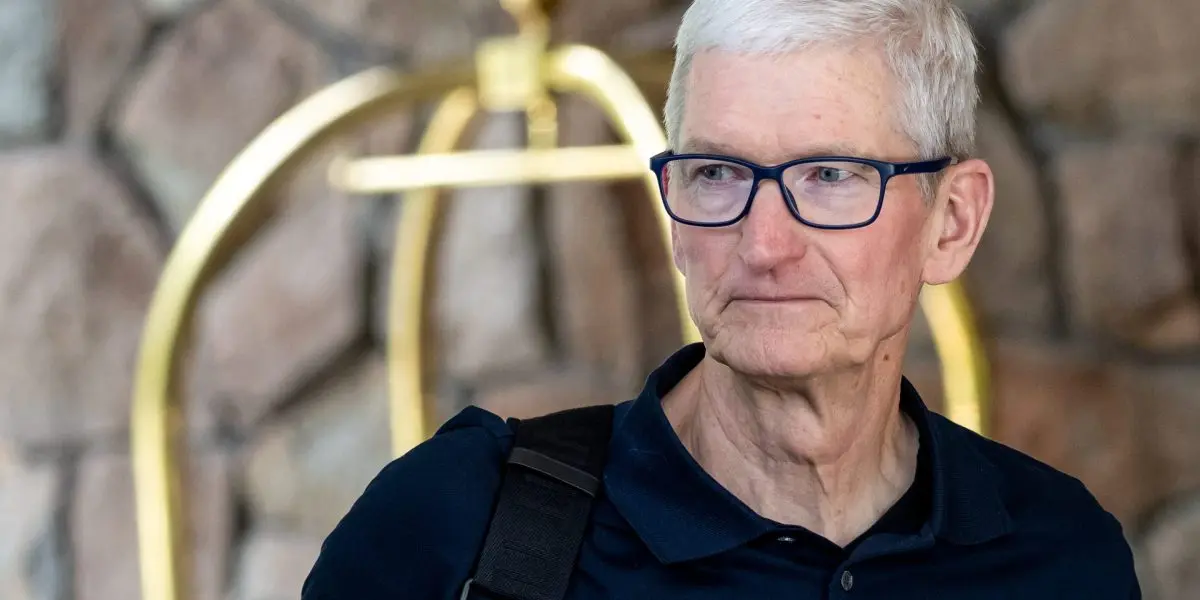
Source: Fortune
The Case for Change
LightShed analysts Walter Piecyk and Joe Galone argue that "Apple now needs a product-focused CEO, not one centered on logistics"
2
. This statement comes in the wake of Apple's perceived failure to capitalize on the AI boom, leaving the company trailing behind competitors like Google, Microsoft, and OpenAI4
.The research note emphasizes the critical nature of AI in shaping future industries, warning that "Missing on AI could fundamentally alter the company's long-term trajectory and ability to grow at all"
1
.Apple's Recent Struggles
Apple's stock has fallen 16% in 2025, contrasting sharply with the gains of competitors like Meta (25%) and Microsoft (19%)
1
. The company's annual Worldwide Developer Conference was described as "a snoozer" by Wedbush analyst Dan Ives, lacking the breathtaking new products or services typically unveiled at such events2
.Bloomberg's Mark Gurman points to several issues under Cook's leadership, including "the company's AI missteps, an aging product lineup, the erosion of its design-focused culture, a decade-long drought of breakthrough mainstream hardware, and its growing tensions with developers and regulators"
5
.The Case for Cook
Despite these challenges, Tim Cook's tenure has seen remarkable success. Under his leadership, Apple's shares have gained over 1,400% since he became CEO, compared to 430% for the S&P 500
1
. The company's market valuation has increased nearly tenfold in 14 years, reaching an impressive $3.12 trillion4
.Executive search experts consulted by Fortune suggest that Cook may be considering stepping down in the next three to five years, potentially at age 68 to 70
2
. However, they also note that Cook feels there is "unfinished business" with AI, which could extend his tenure.Related Stories
Succession Planning and Board Dynamics
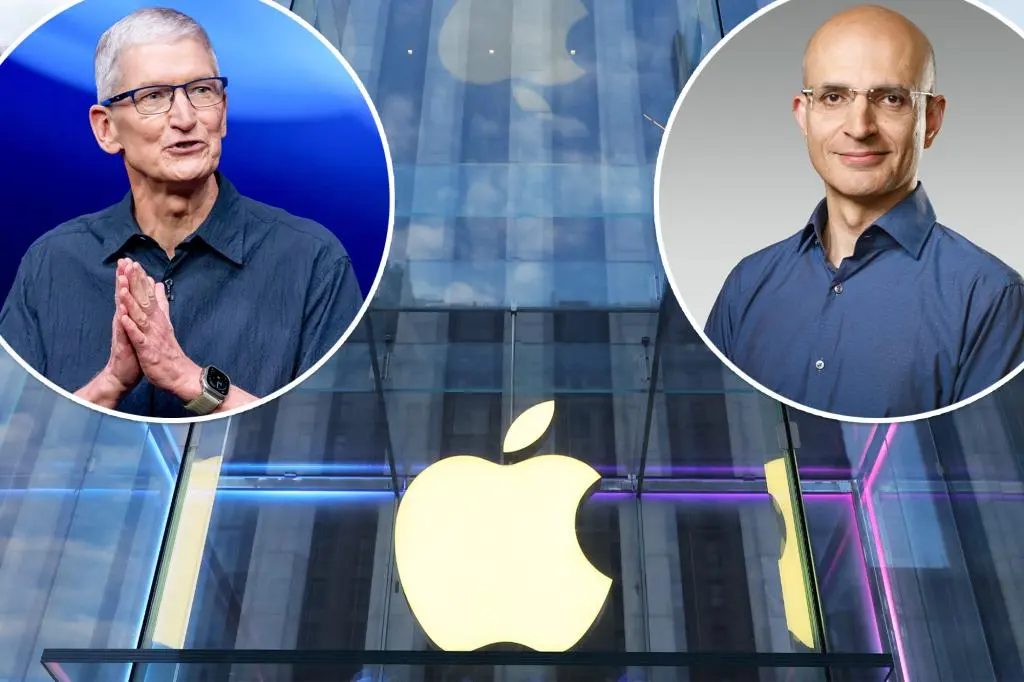
Source: New York Post
The departure of Chief Operating Officer Jeff Williams, once thought to be Cook's likely successor, has shifted the focus to other potential candidates. Senior Vice President of Hardware Engineering John Ternus is now believed to be the frontrunner
1
.However, Bloomberg's Mark Gurman suggests that an immediate change is unlikely. The board, composed of Cook loyalists, doesn't feel the need for a change, and there's no clear successor ready to take the helm
1
.The Road Ahead
As Apple faces these challenges, the company's upcoming earnings report on July 31 is seen as a crucial opportunity to demonstrate a turnaround
3
. The growing services business, including iCloud, App Store purchase fees, and advertising, could provide a lifeline for the company's growth prospects.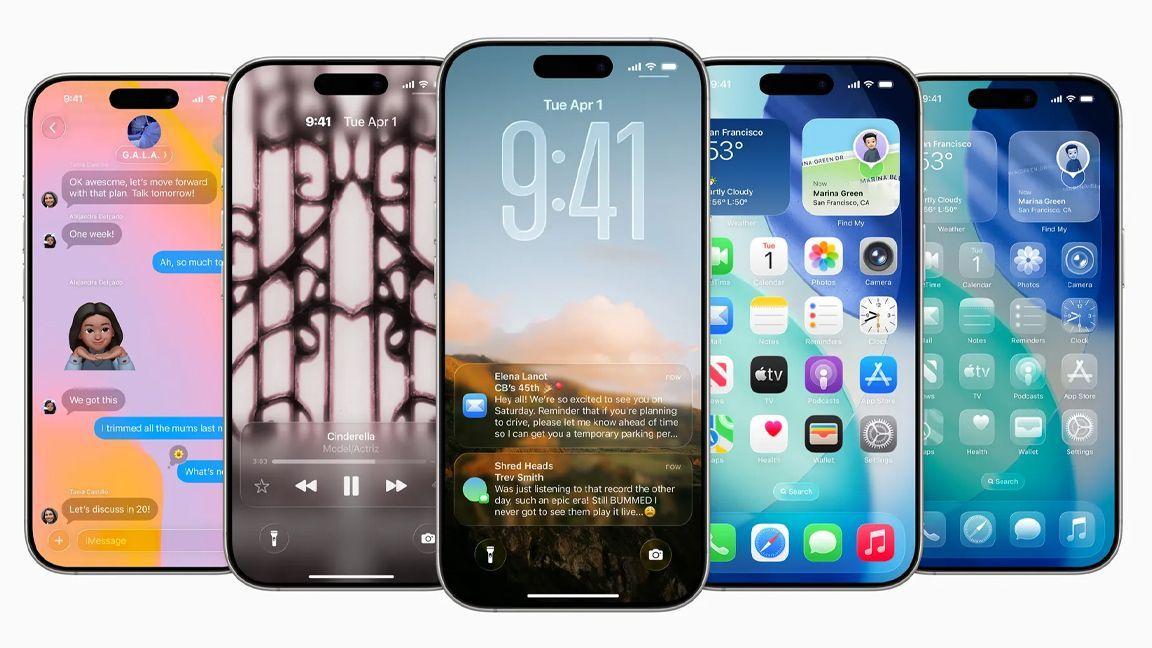
Source: Creative Bloq
While the calls for Cook's replacement have sparked debate, the lack of a clear successor and the board's continued faith in Cook suggest that any leadership change at Apple may still be some time away. The company's ability to innovate in AI and recapture its reputation for groundbreaking products will likely determine its future trajectory and leadership decisions's legacy as CEO.
References
Summarized by
Navi
[3]
[5]
Related Stories
Recent Highlights
1
Elon Musk merges SpaceX with xAI, plans 1 million satellites to power orbital data centers
Business and Economy

2
SpaceX files to launch 1 million satellites as orbital data centers for AI computing power
Technology

3
Google Chrome AI launches Auto Browse agent to handle tedious web tasks autonomously
Technology
